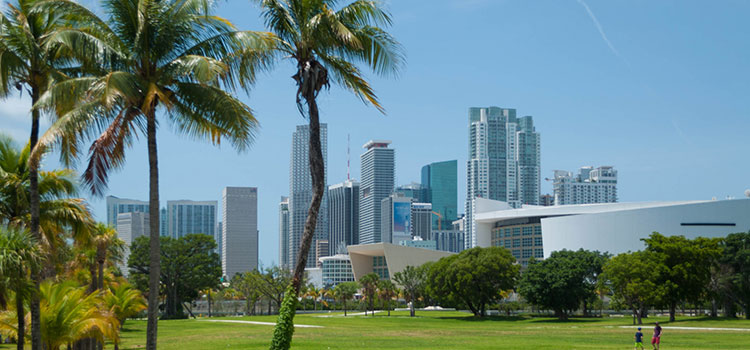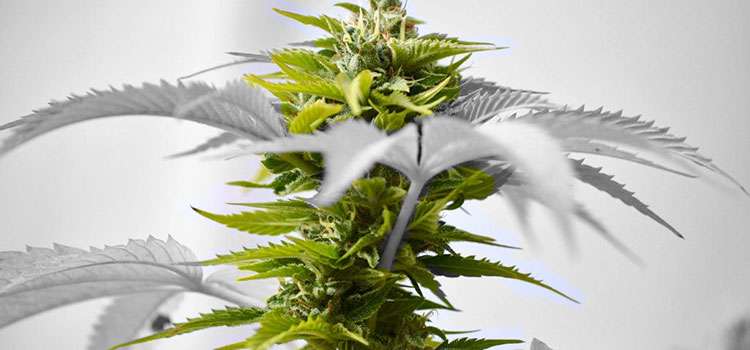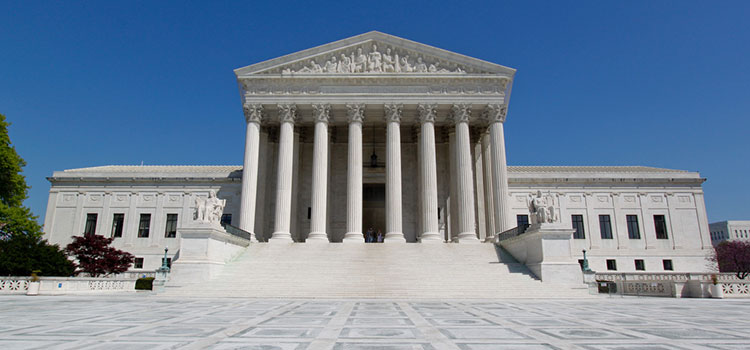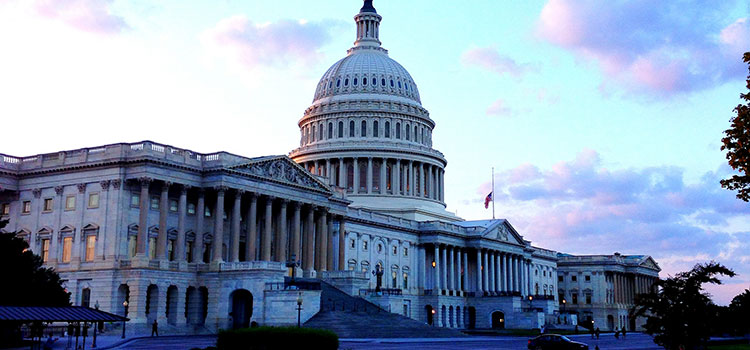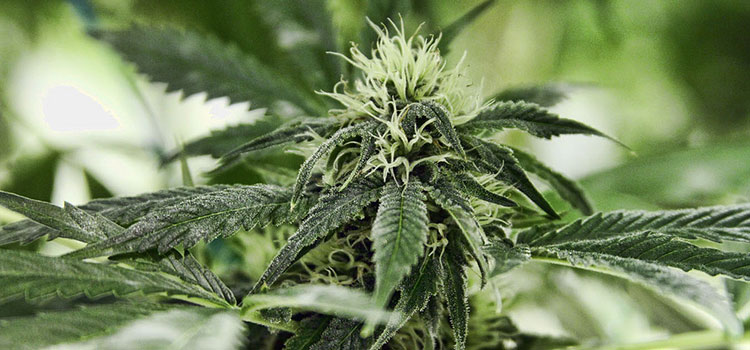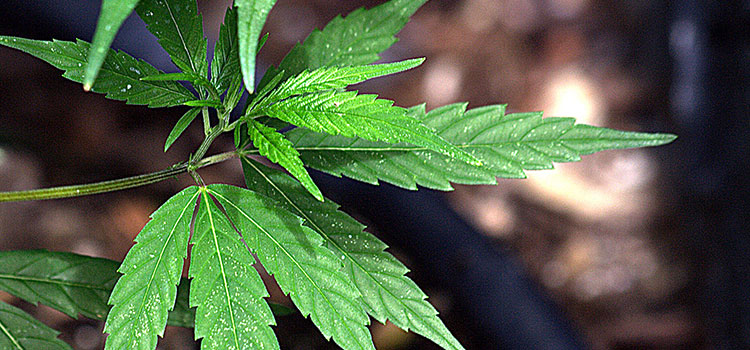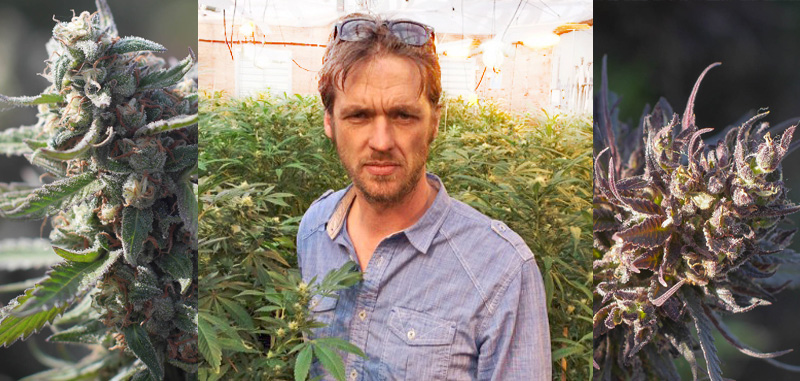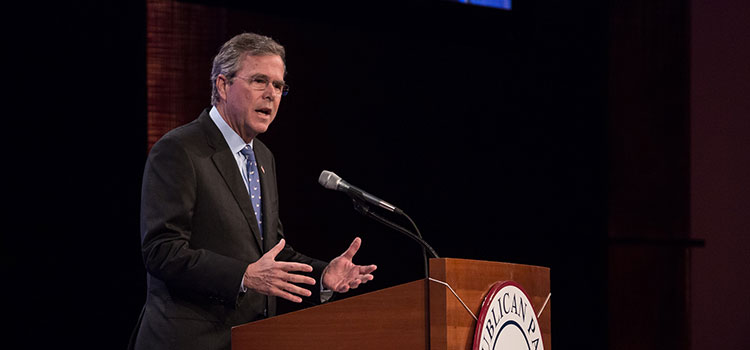Jeremy Moberg is the owner of CannaSol Farms and an outspoken advocate for sun-grown cannabis. He is also the president of the Washington Sun Growers Industry Association and the Okangoan Cannabis Association, and has enjoyed a long career of cultivation. Jeremy recently joined our host Shango Los for a discussion about the benefits of sun-grown cannabis, how natural sunlight helps develop the terpene profiles of cannabis plants, and why he believes that the future of the cannabis industry is going to be led by outdoor growers.
Listen to the podcast below, or scroll down for the full transcript!
Subscribe to the Ganjapreneur podcast on iTunes, Stitcher, SoundCloud or Google Play.
Listen to the podcast
Read the transcript
Shango Los: Hi there and welcome to the ganjapreneur.com podcast. I am your host Shango Los. The ganjapreneur.com podcast gives us an opportunity to speak directly to entrepreneurs, cannabis growers, product developers, and cannabis medicine researchers, all focused on making the most of cannabis normalization. As your host I do my best to bring you original cannabis industry ideas that will ignite your own entrepreneurial spark and give you actionable information to improve your business strategy and improve your health and the health of cannabis patients everywhere.
Today my guest is Jeremy Moberg of CannaSol Farms, a sun-grown cannabis producer in Washington state. Jeremy is also an outspoken proponent of sun-grown cannabis and is president of the Washington Sun Growers Industry Association and the Okanogan Cannabis Association. Hey, welcome, Jeremy. Glad you could be on the show.
Jeremy Moberg: Thanks for having me.
Shango Los: Jeremy, let’s start first and foremost about the flowers that you grow, because that’s what people are probably mostly interested in. What are the unique benefits of sun-grown cannabis in flower potency and terpene profile versus indoor?
Jeremy Moberg: I think it comes from a long evolution of the plant growing, it may sound ridiculous to say, but under the sun. Of course, that’s how it evolved and it’s not fully realized its potential until it has been grown under the full spectrum of the sun. I think that that’s just it, it’s the full spectrum.
We see indoor growers marketing and advertising lighting to be more full spectrum and you can’t get any more full spectrum that the actual sun, so what does that relate or end up in as far as quality in the flower? I think that it has a greater terpene profile. Terpenes and cannabinoids are basically the response to the intensity to the sun and it’s not all just the UV, the wavelengths that photosynthesis happens under.
The other parts of the spectrum play a role as well and I believe that the terpene profiles that come out of sun-grown are generally better than what comes out of one-dimensional, very specific light waves under lights.
Shango Los: I’m already a big fan of sun-grown, but to play the devil’s advocate, I can imagine somebody saying “Well, in my indoor garden, I’m able to treat my ladies like Olympic athletes. I give them only the things that they need. I give them premium light that’s really close and I baby them.” Versus what you’re doing where they’re outdoors and they’ve got the elements and they have to deal with outdoor pests.
What’s your response to that when people say to you “Well, you know, I like to baby my plants better than you do with your outdoor crop.”
Jeremy Moberg: I think that the environment that you’re growing in is critical, whether it’s indoor or outdoor, so obviously not all outdoor locations are created equally. I could not have my farm on the west side of the state and produce the quality that I’ve produced. In that sense, I think there are different environments that are either better or worse for growing marijuana.
Now as far as babying the plants, I have 30 people on staff all summer, so we give a lot of care and attention to all of our plants. Yeah, we may have a little bit more at a single time, but in fact they require a lot of attention. In fact, we’re not just planting seeds and letting them grow and hanging out all summer waiting to reap the rewards of harvest. In fact, it’s much different than that, the way that we grow, the different strains we grow, how we grow them.
As far as who’s spending more time, I think my labor costs are actually higher than indoor operations because they are so demanding and because I grow so many different kinds of pot that have different requirements.
Shango Los: There on the east side of Washington, where there’s more sun than on the west side, obviously you have got some risks just like any outdoor agricultural product is going to have and your risks are going to be different than that of an indoor grower. Why don’t you tick off some of the risks that you either have experienced or have to prevent, growing outdoor versus indoor?
Jeremy Moberg: Yeah, sure. I think it would be really interesting to try to get an insurance adjuster to tackle this question. Like if you were going to put a premium on an insurance policy, what would it be and what would the risk factors between indoor and outdoor be? I don’t think that the risk is all in the outdoor.
There’s so much risk associated with indoor, potentially as well, but the biggest risks that we face are probably high winds because they come fast and they can come hard. We’ve been through some wind events up to 40, 50 mile an hour winds and the plants have been extremely resilient to that, as long as their not rigidly contained.
Sometimes you see the California methods of growing where you’ve got cage over cage over cage and if a 50 mile an hour wind came, well then that plant is just beating itself against that cage and it’s causing injuries, it’s causing potential introductions of virus or disease. As long as the plants are free to move like a tree in the in the forest, sway back and forth, they generally tolerate the wind just fine.
Obviously, the other risks of outdoor growing are pests, but I’ve always said that you might have a pest, but our environment changes so much, even throughout the day; throughout the season; from early season, mid-season, late season; from morning to afternoon to evening. That there’s so much change in the environment that it’s not always an ideal environment for pests whereas if you compare that to an indoor environment, which is really homogeneous, that is ideal conditions for a pest that matches that environment.
There’s really no stopping it. Once that pest gets in that 24 hour of the same conditions, it’s probably going to lead to an extreme amount of problems.
Shango Los: Some outdoor growers say that one of the reasons they like to be outdoors is because the pests, when they’re outdoors, they themselves have got predators that eat them if they invade your crop, whereas in indoors because it’s such a controlled environment, if you get a spider mite, there’s not actually a predator for the spider mite there unless you introduce it.
Is that what you experienced as well as just nature takes care of itself, bringing itself back into balance?
Jeremy Moberg: Yeah, I think the predators do play a role. I don’t think it’s as big of a role as people think. I actually think the fluctuations in temperature and humidity between night and day and season, and just weather events, you get five days of maybe moisture and then 50 days of over 100 degrees like we had this year. Those differences in temperature and whatnot will control the pests and these pests also go through cyclical growth patterns throughout the season.
It’s like aphids are early season, mites late mid-season, caterpillars are final season. You can almost expect to see what sort of pests are going to be next and obviously I have two years under my belt now of large-scale production, and I started to see some of the same patterns I saw last year. We also see pests focus on certain plants whether they’re sick plants or whether it’s just a certain something about that plant.
Spider mites are in the world; you’re going to have them. If you’re outdoors and there’s farming going around, you’re probably going to have spider mites. Hopefully they’re not broad mites from California but hopefully they’re just traditional spider mites. I’ve seen them just attack weak plants and not attack the healthy plants, so I’ll kind of grow a plant for the spider mites.
Shango Los: Oh, I was about to ask you if you culled those weak plants just to not attract them, but it sounds like just the opposite. You’re like “Hey man, you guys can all mack on this one and stay away from the healthy plants.”
Jeremy Moberg: Yeah, that’s what I do. I think if I were to pull that plant, that they would go to the next weakest plant.
Shango Los: Mm-hmm (affirmative), mm-hmm (affirmative). Is part of growing outdoors planting right into the ground or are you still in containers or some sort?
Jeremy Moberg: I prefer planting into the ground. Now that does not that I’m growing in the native soil. I don’t think growing in the native soil is a good option at all. I think you should be amending your soil and you should probably be outsourcing your soil. What we do is we source our soil sustainably. I don’t buy any Canadian peat moss, sphagnum moss, that’s an unsustainable crop.
We do have a peat bog here not far from the farm. It’s not sphagnum, it’s a different species of moss and it’s like 4 and a half million cubic feet of this so we’re able to harvest that there locally, send it to a soil mixer, and then we ship all of our amendments to there and he delivers those in 65 yard truckloads. From there, we drill holes into the ground using a large auger and we fill those up. Essentially, we have pots in the ground.
Shango Los: Right, in-ground pots. I follow that. We need to take a short break. We will be right back. You are listening to the ganjapreneur.com podcast.
Welcome back. You are listening to the Ganjapreneur.com podcast. I am your host, Shango Los, and our guest this week is Jeremy Moberg of CannaSol. Before the break, we were talking about the benefits of sun-grown cannabis and how to go about producing the best sun-grown cannabis that’s possible. We were talking a little bit about all of the wind storms that you occasionally get out there in eastern Washington where you want to be because of all the sunshine.
It occurred to me that with all of that wind going around, you might actually have dusty plants. Do you have that experience of having natural dust settling on the plants and what do you do to get rid of that? Do you have to wash them before market?
Jeremy Moberg: That’s a very good question. Absolutely. Yes. Dust is part of the environment in the Okenagan. Almost anywhere where you have the sun intensity that you need, you’re going to get the dust along with it. Of course, it does collect on marijuana so yes, we do wash our plants and I think it will quickly become the industry standard. I think if you’re not washing your plants, you’re essentially selling dusty weed. I don’t think that’s what consumers want.
I’ve seen it. You can wash plants and see the dust come off of the plant. This summer we had fires in our area so we had tiny little ash particles on the plant. That, and you could get little flies on the plant, I mean, this is an agricultural crop, so just like you would not sell an apple without washing it, you shouldn’t be selling your weed without washing it as well.
Shango Los: That’s a good example. Let’s drill down on that really specific for folks. I’ve seen people on YouTube wash their plants with a water and hydrogen peroxide mixture and they’re just doing it branch by branch, but you’re doing it at a commercial level. Can you get real specific how you wash your plants? Are you washing the entirety of the plant or are you breaking it down partially first? How do you do that?
Jeremy Moberg: Well first off, we don’t add anything to it, it is a pure water wash from well water. I think any sort of adulteration like a hydrogen peroxide or really anything in that mix would not be a good thing. Particularly hydrogen peroxide, it’s known to degrade THC. I think maybe what you’ve seen is people trying to control powdery mildew or some other aspect of it afterwards and that’s not what this is meant for. This is meant to just clean the plant.
We do it on the plant. I prefer to have natural washes and rain can take care of a lot of it, but of course we don’t get a lot of that. Right before the plant, we’ve just got spray nozzles on hoses with clean well water, and we’ll just hold the plant and just wash it straight down.
It does take time, it definitely creates a bottleneck in the process and it creates a lot of work that has to be done because then you’ve got to actually dry the plant before you can move it into dry room or cure room. You just doused it with a lot of water and got it clean. We usually use blow dryers, potentially, or we’ll just hang dry for an hour or so and then move into the cure room.
Shango Los: It’s so convenient that trichomes are hydrophobic so we can get away with this, right?
Jeremy Moberg: Yeah, that’s what I was just going to say too, the nature of the polar molecule is that water does not react with it. It’s kind of the best thing you can use to do it so you’re not degrading the THC or any aspect of the plant by washing it.
Shango Los: Your branding and packaging is just fantastic. It’s elegant, it’s beautiful, it’s attractive to people of all ages. You’re under glass and so you know you’re definitely producing a premium product. Alas, historically, a lot of people have talked trash about outdoor because indoor was hidden and people could give it all the love it needed but outdoor, people were constantly hiding the plants or thinking that they might have to cut and run the plants because we’ve lived under prohibition for so long.
Have you experienced any push back from cannabis retailers that they didn’t necessarily want outdoor, where you had to add a lot more education to your sales cycle or have retailers been really open to it from the get-go?
Jeremy Moberg: The response has varied. Surprisingly enough, eastern Washington seems less apt to have that stereotype about outdoor. I think most people that are coming to the market in eastern Washington, they go to the store and they live in an agricultural zone so for them, their first thought is that it’s all outdoor. It’s a little bit surprising even for some consumers in eastern Washington to be told that there’s an indoor option.
You can’t buy any other crop indoors. You’ve never gotten that option on any other crop, so over in eastern Washington it’s a little bit different. As far as the stereotypes coming from prohibition, they’re largely right. The outdoor crops were not what we’re growing today and it’s gotten much better over time because now we’re able to really care for the plant. We’re not growing like we used to, out in the hills, waiting for a snowstorm to come and harvesting it all right before the snow hits.
Educating the consumer and the retailer on this has been a challenge, but I think the packaging helps. It says that this is a premium product. Also the fact that we grow predominately sativa strains distinguishes us from outdoor. Of course, you could never grow a sativa strain outdoor and now you can because you can control and manipulate the cycle.
That’s something that indoor growers can’t do or have a hard time doing because the cost of growing sativa is so high due to the long flowering time.
Shango Los: That’s where I was going next was the strains. In experimenting with the strains, you can’t just take any old indoor strain and grow it outdoors. Tell us a little bit about the experience that you went through in choosing your outdoor strains for commercial growing.
Jeremy Moberg: I would argue that point. I think you can take any indoor strain and grow it outdoors. I really do not divide genetics between indoor and outdoor. I mean, I do divide them that there’s some that can only be indoor but all of them can be grown outdoor.
I would say that, of course, the long flowering sativas, like ridiculous ones like Dr. Grinspoon which is just a ridiculous plant. I don’t think it would ever mature. You could flower it for twenty weeks and it would still just be throwing all of these pistils off and it’s a terrible yielder.
When I started growing out under the sun, not outdoors like we used to do under the gorilla growing, that’s what outdoor was. This is sun growing, where we have full control and full manipulation of the cycle. Now the challenge is to grow anything. Hence, I’ve got like 120 strains right now, I believe. I believe that they can all be grown, you’ve just got to be able to figure out how to manipulate the plant.
Shango Los: With that many strains, you really caught me off guard with that. Do you have that many strains in production or that you have that many strains that are sitting in your genetics library and maybe you’re running 9 major strains?
Jeremy Moberg: Yeah, it’s a bit like that. I would say there’s about 10 major strains and about 40 additional strains that you could say are in production, in other words we produce more than a pound or so. Then, the other 80 or 50 to 80 that we have are definitely [RND 00:19:54] and looking at different phenotypes of different genetics.
Just this year, I grew the Sage which I’ve always wanted to grow and I had ten females from it and they were all pretty different. Now I’ve got to rate them, mother them, test them, get their terpene profiles, get their cannabinoidal profiles and then make a decision about which one I want to grow. That’s a lengthy process to come up with strains that you want to put to market.
Shango Los: Have you found that either yourself or your sales team have needed to educate the retailers on how to explain the benefits of outdoor versus indoor to the end customer? You know, a lot of folks, especially people who are just now coming into cannabis since it’s legal, they don’t really understand how sunshine greatly widens the terpene profile so it tastes better and it’s more effective medicine and how the potency can be as strong if not stronger.
To get that information down the line from you to your sales people to the bud tender to the consumer, that’s a long way to go. Do you have any support for the bud tenders and retailers on that?
Jeremy Moberg: Yes, that’s a huge point. We have to spend a lot of time doing this and really the whole industry, all the sun growers, need to be doing this. I think CannaSol has definitely led the move towards explaining what sun-grown is to consumers. I think getting in front of the bud tenders is exactly where it’s done. It doesn’t take very long when you have a consumer in front of you, to explain to them the differences and generally, they’re like “This is a no-brainer.”
Of course they’re going to go with the sun-grown. Many of them are like “Well, why are we growing this indoor anyways? I would assume that it’s a crop and that it would be grown under the sun.” So it’s really kind of an odd place where we’re at, that we’ve gotten to through prohibition. The indoor growing was purely a product of prohibition. It would never have existed had prohibition not moved it inside.
Now we’ve got this inertia behind this concept because remember indoor growing, it’s a good thing too. I’ve done plenty of it myself because we grew quality marijuana for the first time indoors and because we couldn’t have that control and that manipulation outdoors. Now we can and overcoming that stereotype definitely is a challenge, but when you just start talking about the details of it, the environmental impact is huge.
Shango Los: No, no, Jeremy. Hold on. Before you go into the environmental impact, because I know this is one of your favorite topics to talk about, we need to take a quick short break. When we come back, we will talk about the environment and the electricity uses of indoor. Your listening to the ganjapreneur.com podcast. We will be right back.
Welcome back. You are listening to the ganjapreneur.com podcast. I am your host, Shango Los, and our guest this week is Jeremy Moberg of CannaSol. Now, Jeremy, I know that one of the biggest reasons that you choose to grow outdoor outside of the potency and awesome terpene profiles of outdoor
cannabis is that you are a very dedicated environmentalist.
You have spoken to the Washington Liquor Control Board about the harms of the electricity usage for indoor grows and honestly, you’re probably the most educated person on cannabis electricity consumption that I know of. Why don’t you talk about it a little bit? I want to give you a platform to talk about why you think that electricity-grown cannabis is inappropriate and should be phased out.
Jeremy Moberg: I think some credit goes out to Dr. Evan Mills. He is a research scientist out of the National Labs out of San Francisco. He took this project on upon his own time and so he had heard about it and he decided to look into it. He got the numbers together and crunched them and came out with a pretty amazing peer-reviewed research that concluded that 1% of the nation’s power is being used to grow marijuana currently. That’s equal to 2 to 3 million homes’ electrical consumption.
There’s a couple different ways to produce power. You can produce it with coal or carbon-based power, you can produce it cleaner with wind or hydropower. Of course, we’re in a hydropower state; that’s a real benefit to our area. That doesn’t mean that we should waste it, though. In terms of carbon, if that were carbon-produced, that’s 2 to 3 million cars on the road.
The statistics are amazing and then when you start to dial it in to what does it mean for Washington, I did a lot of analysis of what I thought Washington was producing and I came up with about 4% of the state’s power was being used to cultivate. If all of the legal indoor grows were all indoor and that is more than all the solar power that we produce in the state currently.
Then at the same time, we’re advocating for solar. Put the brakes on that. Don’t worry about putting more solar operations up as long as we have warehouses growing marijuana where there is a viable alternative which is to grow under the sun. We saw this in the Seattle City Council. The Seattle City Council a year and a half ago or maybe two years ago now, when this issue was in front of the Liquor Control Board, they were about ready to zone 80,000 square foot indoor grows for the SoDo district, and on the very same day, adopted the most aggressive climate agenda of any city in the United States.
Well, I got on the phone and called every single council member that I could and talked to most of their aids, and they just didn’t have an answer. They couldn’t say “Oh, well.” One of them was like “Well, we work for the patients.” Just kind of punt it, but they definitely reacted to it and I got that bill stopped. They were going to fast-track it and we brought this to their attention and they were like “Whoa, okay. Maybe we can’t do this.”
What they ended up doing was a 10,000 square foot grow. Somehow though, in the SoDo district today, we’ve got 30,000 square foot grows. I’m not totally sure how that happened since we already had the Seattle City Council say no to that and limit them to 10,000 square foot, but obviously there’s a loophole there. I think the take-home here with Seattle, which is really the birthplace of indoor really, is that they’ve got to correct this problem.
We’re an eco-conscious culture, particularly there in Seattle, and we’ve got to live up to it. I think it’s just in education. We’ve got to educate the consumer. The consumer never had the opportunity to ask their drug dealer if their pot was sustainably farmed. Now as a consumer, you have that responsibility just as you do with all your other choices that you make.
If you’re driving a Prius and eating sustainably or buying fair-trade and locally-sourced, then you’ve got to ask that same question about your marijuana. I think that’s beginning to happen.
Shango Los: How do you see this playing out? Obviously, there’s a lot of people that are cringing and raising red flags and maybe even hating you a little bit listening to what you’re saying because they’re married to their indoor grows because that’s how they’ve always done it. For the most part, that’s how we’ve done it for the last several decades. Do you envision a world where indoor is very little or totally phased out? Or do you think that there’s room for both in the market?
Jeremy Moberg: I’ve always said that in five years, we’ll remember a time when we potted indoors. I truly believe that that is the case. How long that takes and how painful is that for the industry has yet to be seen. The Liquor Control Board and the government could have really done this. I have a feeling if we were in the Netherlands, that they would have said “No, we’re not going to use this power to do this. We have a viable alternative and we protect our resources.”
That’s the job of government. They failed here on this. They could have done this through rule, they could have said “We’re not going to support indoor growing. It’s too much of a energy toll, it’s too much carbon-produced.” That’s unfortunate that the government hasn’t taken a leading role on this issue, particularly our governor who claims to be the next Al Gore. He wrote a book about carbon production. He’s constantly harping about it, but then when this issue is in front of him, he does nothing.
I actually got him on Pay 01W about a year and a half ago and raised the issue and he was totally caught off guard. I made attempts since then for him to adopt it and I think for politicians like for Obama, on the national level, it would be an amazing approach for him to just be like “Okay, I don’t have that much of an opinion about it, but if we’re going to do this, we have to protect the environment and we have to protect our kids from global warming.”
The western side of the country that is pioneering legalization also has some of the more cleaner power. As legalization rolls east, there’s going to be more and more incentive and reason for people to try to limit this to indoors and that’s going to be a national catastrophe.
Shango Los: Right on. Well, with that, that sounds like where we’ve got to stop for the day. Jeremy, thank you so much for joining us. It’s been a real pleasure to have you on this show.
Jeremy Moberg: Thank you, Shango.
Shango Los: You can find out more about Jeremy Moberg and CannaSol on their website cannasol, that’s C-A-N-N-A-S-O-L dot net. You can find more episodes of the Ganjapreneur podcast in the podcast section of ganjapreneur.com. You can also find us on the Cannabis Network website and in the Apple iTunes store. On ganjapreneur.com, you will find the latest cannabis news, product reviews, and cannabis jobs updated daily along with transcriptions of this podcast. You can also download the ganjapreneur.com app in iTunes and Google Play.
We are also thrilled to announce that you can now find this show on the I Heart Radio Network app, bringing Ganjapreneur to 60 million mobile devices. Do you have a company that wants to reach our national audience of cannabis enthusiasts? Email grow@ganjapreneur.com to find out how. Thanks to Brasco for producing our show, as always. I am your host, Shango Los.


